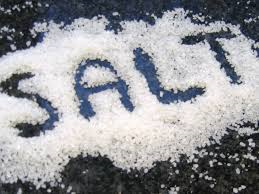Hyponatremia is a condition that occurs when the level of sodium in your blood is abnormally low. Sodium is an electrolyte, and it helps regulate the amount of water that’s in and around your cells.
In hyponatremia, one or more factors — ranging from an underlying medical condition to drinking too much water during endurance sports causes the sodium in your body to become diluted. When this happens, your body’s water levels rise, and your cells begin to swell. This swelling can cause many health problems, from mild to life-threatening.
Hyponatremia treatment is aimed at resolving the underlying condition. Depending on the cause of hyponatremia, you may simply need to cut back on how much you drink. In other cases of hyponatremia, you may need intravenous fluids and medications.
Sodium we know what systems it effects from yesterday’s article on sodium in general of how it works in the human body. If you don’t know and didn’t get a chance to read it yesterday stop this article going to yesterday’s to read over the general information of how sodium works and effects the human body. This will help you understand the signs and symptoms easier.
Hyponatremia signs and symptoms may include:
- Nausea and vomiting
- Headache
- Confusion
- Loss of energy and fatigue
- Restlessness and irritability
- Muscle weakness, spasms or cramps
- Seizures
- All the way to a ComaA normal sodium level is between 135 and 145 milliequivalents per liter (mEq/L) of sodium. Hyponatremia occurs when the sodium in your blood falls below 135 mEq/L.
- Many possible conditions and lifestyle factors can lead to hyponatremia, including:
- Sodium plays a key role in your body. It helps maintain normal blood pressure, supports the work of your nerves and muscles, and regulates your body’s fluid balance playing a particular role in acid and base balances inside our blood stream working with in particular potassium.
- Certain medications. Some medications, such as some water pills (diuretics), antidepressants and pain medications, can cause you to urinate or perspire more than normal. Medications that increase your risk of hyponatremia include thiazide diuretics as well as some antidepressants and pain medications. In addition to the recreational drug Ecstasy has been linked to fatal cases of hyponatremia.
- Heart, kidney and liver problems. Congestive heart failure and certain diseases affecting the kidneys or liver can cause fluids to accumulate in your body, which dilutes the sodium in your body, lowering the overall level.
- Syndrome of inappropriate anti-diuretic hormone (SIADH). In this condition, high levels of the anti-diuretic hormone (ADH) are produced, causing your body to retain water instead of excreting it normally in your urine.
- Chronic, severe vomiting or diarrhea. This causes your body to lose fluids and electrolytes, such as sodium.
- Drinking too much water. Because you lose sodium through sweat, drinking too much water during endurance activities, such as marathons and triathlons, can dilute the sodium content of your blood. Drinking too much water at other times can also cause low sodium.
- Dehydration. Taking in too little fluid can also be a problem. If you get dehydrated, your body loses fluids and electrolytes.
- Hormonal changes. Adrenal gland insufficiency (Addison’s disease) affects your adrenal glands’ ability to produce hormones that help maintain your body’s balance of sodium, potassium and water. Low levels of thyroid hormone also can cause a low blood-sodium level.
- The recreational drug Ecstasy. This amphetamine increases the risk of severe and even fatal cases of hyponatremia. In acute hyponatremia, sodium levels drop rapidly — resulting in potentially dangerous effects, such as rapid brain swelling, which can result in coma and death.Seek emergency care for anyone who develops severe signs and symptoms of hyponatremia, such as nausea and vomiting, confusion, seizures, or lost consciousness.
- Call your doctor if you know you are at risk of hyponatremia and are experiencing nausea, headache, cramping or weakness. Depending on the extent and duration of these signs and symptoms, your doctor may recommend seeking immediate medical care.
- Premenopausal women appear to be at the greatest risk of hyponatremia-related brain damage. This may be related to the effect of women’s sex hormones on the body’s ability to balance sodium levels.
- In chronic hyponatremia, sodium levels drop gradually over 48 hours or longer — and symptoms and complications are typically more moderate.
- Also for older adults they may have more contributing factors for hyponatremia, including age-related changes, taking certain medications and a greater likelihood of developing a chronic disease that alters the body’s sodium balance.
